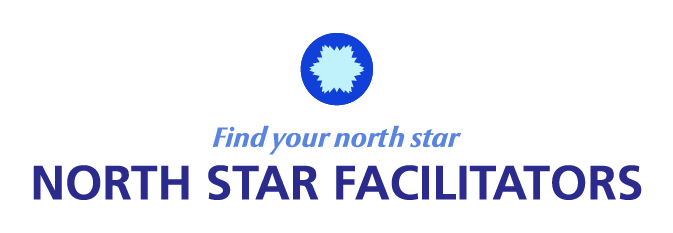I’ve Been Electrified Into a New Level of Competency!

 I got this idea to write a blog about a thrilling (electrifying!) insight I got about facilitator competency from a recent cycling class!
I got this idea to write a blog about a thrilling (electrifying!) insight I got about facilitator competency from a recent cycling class!
The reason I wanted to write about the difference between the four stages of learning competency is the experience I had last week.I have been taking these spin (i.e., a term for stationary indoor biking) classes for a few months before my foot surgery and again, a couple of months after my foot surgery. I noticed that some instructors I liked a lot better than others. It seemed it was the quality of their instruction and even the tone of the voice that made a difference but I couldn’t put my finger on it.
 By accident, I joined a class with a new instructor last week. I could not believe the difference. She knew exactly what she was talking about. She was able to explain why she was doing certain exercises a particular way. For example, she said it’s really important that we work on developing muscle strength before we work on speed. You can really damage your body if you work on speed too quickly before you get your muscle strength. That made so much sense to me since I had injured myself in early spin classes when we worked a lot on speed. I hated those speed exercises. But now that I’m strong, I actually enjoy the challenge of them. Each time I take a class with her, I understand and can follow her exactly at any given moment. I know what to expect and feel she is working with us and supporting our growth. I relax more under her guidance than with other instructors. Suddenly it occurred to me here was an incredibly masterful group instructor and she was simultaneously consciously competent and unconsciously competent. She even told us “I know what I am doing”. Immediately, I thought this insight is really important to me in my work as a professional facilitator.
By accident, I joined a class with a new instructor last week. I could not believe the difference. She knew exactly what she was talking about. She was able to explain why she was doing certain exercises a particular way. For example, she said it’s really important that we work on developing muscle strength before we work on speed. You can really damage your body if you work on speed too quickly before you get your muscle strength. That made so much sense to me since I had injured myself in early spin classes when we worked a lot on speed. I hated those speed exercises. But now that I’m strong, I actually enjoy the challenge of them. Each time I take a class with her, I understand and can follow her exactly at any given moment. I know what to expect and feel she is working with us and supporting our growth. I relax more under her guidance than with other instructors. Suddenly it occurred to me here was an incredibly masterful group instructor and she was simultaneously consciously competent and unconsciously competent. She even told us “I know what I am doing”. Immediately, I thought this insight is really important to me in my work as a professional facilitator.
The Four Part Competency Model
Here is the traditional model of conscious competency that many of you may have heard of… I had to go back and check the four levels so I thought you might benefit from seeing the model here also. More in the resource links below also.

Initially described as “Four Stages for Learning Any New Skill”, the theory was developed at Gordon Training International by its employee Noel Burch in the 1970s.[1] It has since been frequently attributed to Abraham Maslow, although the model does not appear in his major works (quote from Wikipedia)
As you can see with the diagram of the four parts of learning a skill, you start out with unconscious incompetence. In the case of the meeting facilitator, you don’t even know that your meetings are not working well likely because you don’t know there’s a better way.
Tips for Moving From Level I to Level II
The next step in your learning, at level II, is that you actually see someone using a few tools and techniques and you have an “aha” that things could be better. The tools seems to work well, and you decide you need to gain some more skill. We might say that at this level, you’re just trying to learn basic meeting skills. I like this list of basic skills that Ruby Calvin, a contributor to the IAF (International Associaiton of Facilitators) list serv pointed out:
-
- 1. Remaining neutral on issues
-
- 2. Being an active listener
-
- 3. Knowing how to ask questions
-
- 4. Encouraging open communication
-
- 5. Retaining focus on the issues.
These are the skills you need to practice over and over until you reach level III – conscious competence in them. Now I would have to say for myself that I have been “feeling” consciously incompetent (Level II) in my facilitation for many years. People often tell me that I’m really good at what I do. But, I would shrug my shoulders when they told me that, and think well “that was luck or a really easy group.” I would dwell on the groups that I found incredibly challenging. But now I realize I have been mostly operating at Level IV as unconsciously competent. So, did I miss a level?

Or, maybe my own insecurities and fears have gotten in the way of acknowledging it. I understand now what my colleagues were saying about how I work. And I feel electrified. So I thought perhaps some of you have been feeling this way too and maybe it would be helpful to share this story with you. For example, relating back to what the new spin instructor does, I also often tell the group exactly what I’m doing, why am doing it and the result we are aiming toward at every step of the agenda. I can now see that mostly the groups I work with feel assured that at any given moment, they know what is happening, what they are working towards and that they can follow and trust my guidance!
And it is really important for me to claim this. I think that it makes a big difference in how a group feels and behaves when they are guided by someone who knows they are at Level III and/or IV versus level II – consciously incompetent. It might look like these bouquets of flowers that I took. In the first bouquet, I wired them together because they were falling over from lack of water. And the vase is tall and more formal. When we are consciously incompetent, we are “holding onto” ourselves and our groups very tightly. We are following the agenda more rigidly and perhaps less adaptable than we wish to be. (i.e., like the black vase set of flowers). In the second bouquet, they are not wired together, in a less formal vase, and they hang a bit less perfectly. BUT, they are freer and more natural-looking. (i.e., more like level III and IV)


The insight however for me is that now I know I am at Level III and often IV, I can shine even more. I might even tell groups “I know what I am doing” as a way to reassure them they are in good hands. It is like I am saying “I’ve got this” and symbolicially they know they can “put themselves in my hands”.
Tips for Moving to Levels III and IV
By the time you are ready to work towards conscious competence, you will want to add a few more qualities to the skills you have been developing at levels II and III. Another contributor, to the IAF list serve, Robin Reid, said these qualities are developed through experience rather than through training and listed them as:
- Self awareness
- Acceptance of others and self
- Authentic and congruent – i.e., walk our talk
- Open to self growth
- Flexible about our learning and how to do things.
So our job is to self assess on these five qualities and take up new daily practices that help us develop them more. And when someone tells us we are competent, we need to let that sink in, accept the glory of it and allow yourself to feel it. And then act that way with every meeting or event you lead. And, a last tip that has helped me is that I’ve found working with a co-facilitator always helps me be my best and act more at levels III and IV.
Heads up on a learning opportunity: a group of four diverse facilitators at the various stages of the four part spectrum, hope to be accepted as presenters at the IAF Asia conference in Seoul on a topic related to this!
Conclusion
It is painful to be at Levels I and II – i.e., unconsciously incompetent and consciously incompetent. It is however, a necessary stage of our growth in any new skill we are developing. I have enjoyed these levels. And it is also very gratifying to know that I have been operating at conscious competence as a facilitator but ironically I did not know it. And by acknowledging and accepting this, I better serve the groups I work with. It is much easier and there is more peace, harmony and wisdom (see banner) in accepting this, than denying it any longer. Since this is a new insight for me, I would dearly love hearing from a few others about how you have experienced these learning levels.
I was researching the topic on the web, I saw lots of articles of interest about facilitator competencies and self assessments so I posted some of the more interesting ones I found below for your continuing learning enjoyment.
Resources
http://masterfacilitator.blogspot.com/2008/11/what-constitutes-facilitator-competency.html
http://www.albany.edu/cpr/gf/resources/FacilitatorCompetencies.html
https://en.wikipedia.org/wiki/Four_stages_of_competence
https://www.iaf-world.org/site/professional/core-competencies
http://smallbusiness.chron.com/facilitator-assessment-tools-81499.html
Video: https://youtu.be/P0anDZzmjqY

